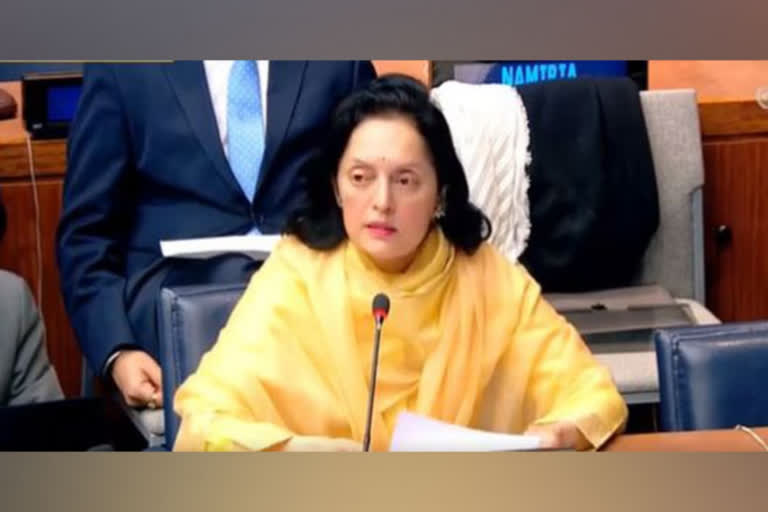United Nations:India has told the UN Security Council that violence perpetrated by terrorists against women and girls remains rampant and should be strongly condemned while calling for the adoption of a zero-tolerance approach to all forms of terrorism. India's Permanent Representative to the UN Ambassador Ruchira Kamboj said on Tuesday that Member States must provide a conducive environment for the participation and inclusion of women in political processes and decision-making.
Terrorism and violent extremism continue to be the biggest violators of human rights and a persistent threat to global peace and security. Needless to say, women and girls suffer invariably and disproportionately, she said. Speaking at the UN Security Council open debate on Women, Peace and Security: Towards the 25th Anniversary of Resolution 1325', Kamboj said violence against women and girls perpetrated by terrorists remains rampant.
This deserves the strongest condemnation and calls for the adoption of a zero-tolerance approach to all forms of terrorism, she said. The Security Council adopted resolution 1325 on women and peace and security in October 2000. The resolution reaffirms the important role of women in the prevention and resolution of conflicts, peace negotiations, peace-building, peacekeeping, humanitarian response and post-conflict reconstruction and stresses the importance of their equal participation and full involvement in all efforts for the maintenance and promotion of peace and security.
Addressing the debate held under Mozambique's Presidency of the Council for the month of March, Kamboj said: To foster such an enabling environment, the principles of democracy, pluralism and the rule of law are essential prerequisites. Referring to the situation in Afghanistan, Kamboj said India has been emphasising the importance of inclusive and representative governance in Afghanistan, with the meaningful participation of women in accordance with UNSC resolution 2593 which was adopted under India's Presidency of the Council in August 2021.
The United Nations and regional organisations must assist national authorities, upon their request, in developing capabilities to strengthen their national legal frameworks and related institutional structures for ensuring accountability and checking the impunity of those perpetrating violence against women, she said.
Member States should also be provided support for capacity building in post-conflict situations to address meaningfully and institutionally the inequalities and violence faced by women, and to ensure their full participation in decision-making. A focus on women in peacebuilding efforts is crucial, she added.
